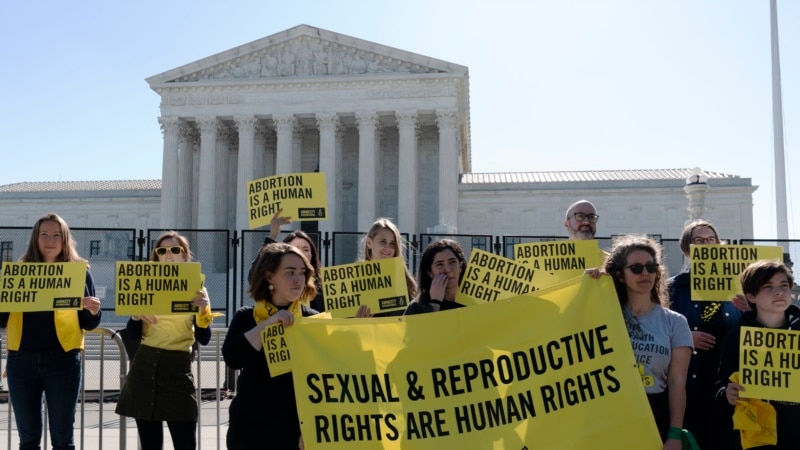Democrats in the U.S. Senate are forcing a likely futile vote Wednesday to codify women’s rights to abortion across the country ahead of a prospective Supreme Court ruling that could end or sharply limit the constitutionality of national abortion rights.
In the politically divided Senate with 50 Democrats and 50 Republicans, almost all Democrats support national abortion rights and nearly all Republicans oppose them.
But the Democrats appear to lack even a simple majority to codify abortion, let alone the 60-vote supermajority needed to bypass an expected Republican filibuster. A vote on similar legislation in March failed 46-48.
Nonetheless, Senate Majority Leader Chuck Schumer is pushing ahead with a new vote after a draft Supreme Court decision was leaked last week showing that a five-member conservative majority on the nine-member appears ready to overturn a nearly five-decade precedent in the U.S. that women have a constitutional right to abortions.
Schumer told the Senate Tuesday, “The vote to protect abortion rights will shine like a floodlight on every member of this chamber.”
With control of the Senate at stake in November congressional elections, Democrats are hoping that women supporting abortion rights — a majority in the U.S., according to polling — will elect more abortion-rights supporters in the Senate that takes office in January.
The leaked draft opinion, written by Justice Samuel Alito in February, was confirmed by Chief Justice John Roberts as authentic but not necessarily the final opinions of individual justices.
The court is expected to issue its ruling in late June or early July, and, if abortion rights are curbed, it would leave abortion rights up to individual states.
The Guttmacher Institute, which supports abortion rights, says that if the 1973 Roe v. Wade abortion rights decision is overturned, it believes 26 of the country’s 50 states are certain or likely to ban abortion.
Women looking for an abortion who live in any of the 26 states would be forced to travel to a state where abortions would be legal or perhaps end their pregnancies at home with abortion pills, although dozens of anti-abortion state lawmakers are trying to ban medical abortions as well and make it illegal to buy the prescription pills.
Some demonstrators opposing or supporting the prospective ruling immediately gathered at the court after the draft opinion was published by Politico, a Washington political news outlet. With the possibility of street violence when the court actually rules, the court this week erected unscaleable fencing around the plaza in front of the court.
Several pro-abortion rights activists have demonstrated outside the Washington-area homes of some of the court’s conservative justices in recent days to protest their seeming support for overturning the landmark abortion rights decision.
Polls in the U.S. have long shown wide support for retaining national abortion rights, although some supporters favor restrictions on abortion rights the further along women are in their pregnancies.
A Reuters/Ipsos poll last week found 63% of those surveyed, including 78% of Democrats and 49% of Republicans, would be more likely to support candidates in November’s elections who support abortion rights.

